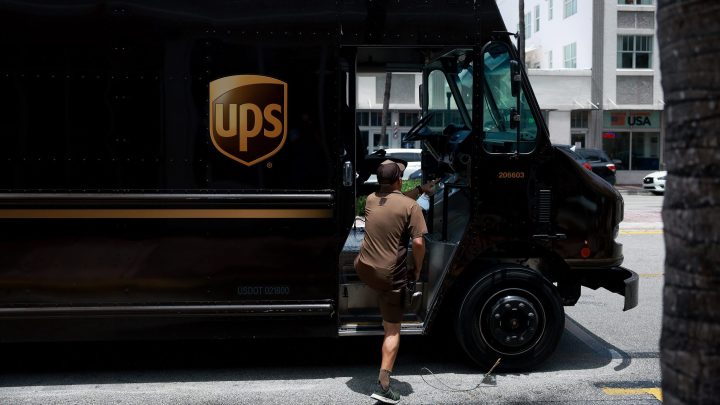
UPS moves further into “reverse logistics” with purchase of Happy Returns
UPS moves further into “reverse logistics” with purchase of Happy Returns

Logistics company UPS noted in its earnings call last week that its returns business has grown 25% since 2020. It also announced that it’s acquiring the software and reverse logistics company Happy Returns from PayPal for an undisclosed sum.
The way Happy Returns works is you bring the item you want to return to one of their drop-off locations, show them a QR code and they’ll take it.
“You don’t have to worry about boxing it back up, putting a label on it. You kind of give them your bathing suit and go, ‘Here,’” said Cathy Roberson, research manager for the Reverse Logistics Association and a former UPS employee.
UPS already works in reverse logistics, or returns processing, and with this acquisition, it will get Happy Returns’ more than 10,000 drop-off locations. It’s also adding box-free, label-free returns to its network of UPS Stores.
Roberson pointed out that having these drop-off locations saves UPS money by allowing it to pick up a bunch of packages in one spot.
“Instead of having to go door to door to door to pick them up,” Roberson said. “That costs money in terms of time as well as in terms of gas.”
Happy Returns’ drop-off sites are in existing retail stores, such as Staples and GameStop — places where a UPS driver might already be going to make deliveries.
“If they’re able to pick up stuff also, that’s a benefit,” said Bloomberg Intelligence analyst Lee Klaskow.
Also, retailers might be willing to pay UPS extra for boxing up the goods, if it means they receive the items sooner.
“They’re getting the value of getting it back into their inventory, being able to resell it quicker or do whatever they want to do,” Klaskow said.
He noted that the acquisition also likely gives UPS a bigger chunk of the growing returns market.
“They are going to get more freight into their system,” Klaskow said.
In its earnings call last week, the company noted that an estimated 20% to 30% of all online orders are now returned.
There’s a lot happening in the world. Through it all, Marketplace is here for you.
You rely on Marketplace to break down the world’s events and tell you how it affects you in a fact-based, approachable way. We rely on your financial support to keep making that possible.
Your donation today powers the independent journalism that you rely on. For just $5/month, you can help sustain Marketplace so we can keep reporting on the things that matter to you.

















